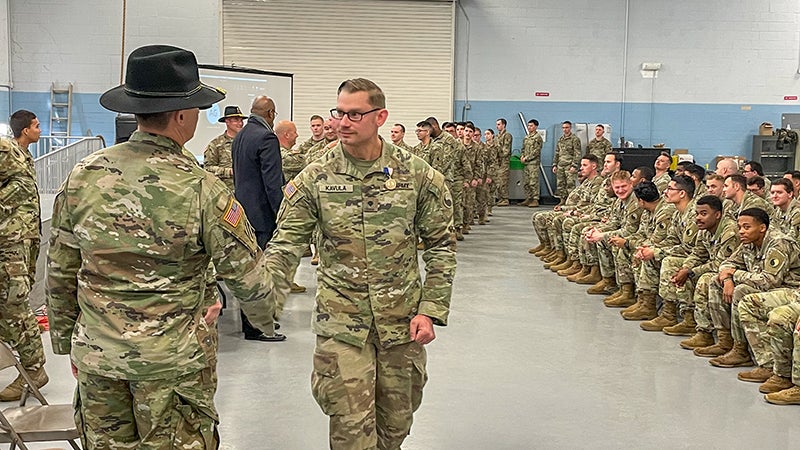Remembering Grant
Published 7:57 pm Monday, February 28, 2011

General Robert E. Lee had denied a series of Union commanders decisive victories in the East, but the most successful Union commander, Ulysses S. Grant, had made a name for himself in the western campaigns, building a reputation around the Mississippi and Tennessee rivers in 1863 and becoming known as the hero of Vicksburg and Chattanooga.
Military leader helped bring victory to Union
By March 1, 1864, the American Civil War was preparing to enter its fourth year.
General Robert E. Lee had denied a series of Union commanders decisive victories in the East, but the most successful Union commander, Ulysses S. Grant, had made a name for himself in the western campaigns, building a reputation around the Mississippi and Tennessee rivers in 1863 and becoming known as the hero of Vicksburg and Chattanooga.
With the Union armies achieving somewhat less success in the East, the U.S. Congress sought to consolidate leadership of its forces. On March 1, 1864, Grant got the job, having been elevated to the rank of Lt. General, a position that previously had only been held by George Washington, and by him not until after his presidency.
Despite his success in the West, the decision to promote Grant had hardly been without reservation. He had a reputation as a heavy drinker, he had graduated from the United States Military Academy at West Point without distinction, he had a rough relationship with military correspondents sent to cover the war, and he had initially resigned from the Army in 1854 in order to avoid being drummed out of the service after serving as a captain during the Mexican War.
But he was also known to be loyal, determined and calm, and his victories in the western campaigns spoke for themselves.
Having avoided success in civilian life, when the war broke out, Grant had quickly volunteered to join the Union forces in Illinois. He soon became colonel of a volunteer regiment and rose quickly through the ranks. In 1862, he became famous, as his victories at Fort Henry and Fort Donelson in Tennessee earned him the nickname “Unconditional Surrender.”
That same year, at Shiloh, Union forces under his command took heavy losses, and it looked as if they might lose. There were calls after a bloody day’s fighting for President Abraham Lincoln to remove Grant from command, but the president refused, reinforcements were sent and the men Grant led won the victory.
A little more than a year later, Grant’s army laid siege to the town of Vicksburg, Miss., securing after 46 days the surrender of Confederate General John Pemberton’s 30,000-man army.
After his appointment by President Lincoln as lieutenant-general, Grant set up headquarters with the Army of the Potomac and turned his attention to the destruction of Gen. Robert E. Lee’s Army of Northern Virginia.
Just a little more than 13 months later, on April 9, 1865, at a farm in Appomattox Courthouse, he once again affected the unconditional surrender of a foe, this time accepting the capitulation of the confederate force by General Lee.
Grant’s future would include an appointment to President Andrew Johnson’s cabinet as Secretary of War and then two terms as president.
Following his presidency, he became involved with a series of failed business ventures, and he wrote an autobiography at the age of 63, completing it just a few days before dying of cancer.
General U.S. Grant is buried in a mausoleum in New York City. His tomb is a national memorial.
Sources: The Gilder Lehrman Institute of American History (www.MrLincolnsWhiteHouse.org); Civil War Trust (www.CivilWar.org); U.S. Army (www.Army.mil)





